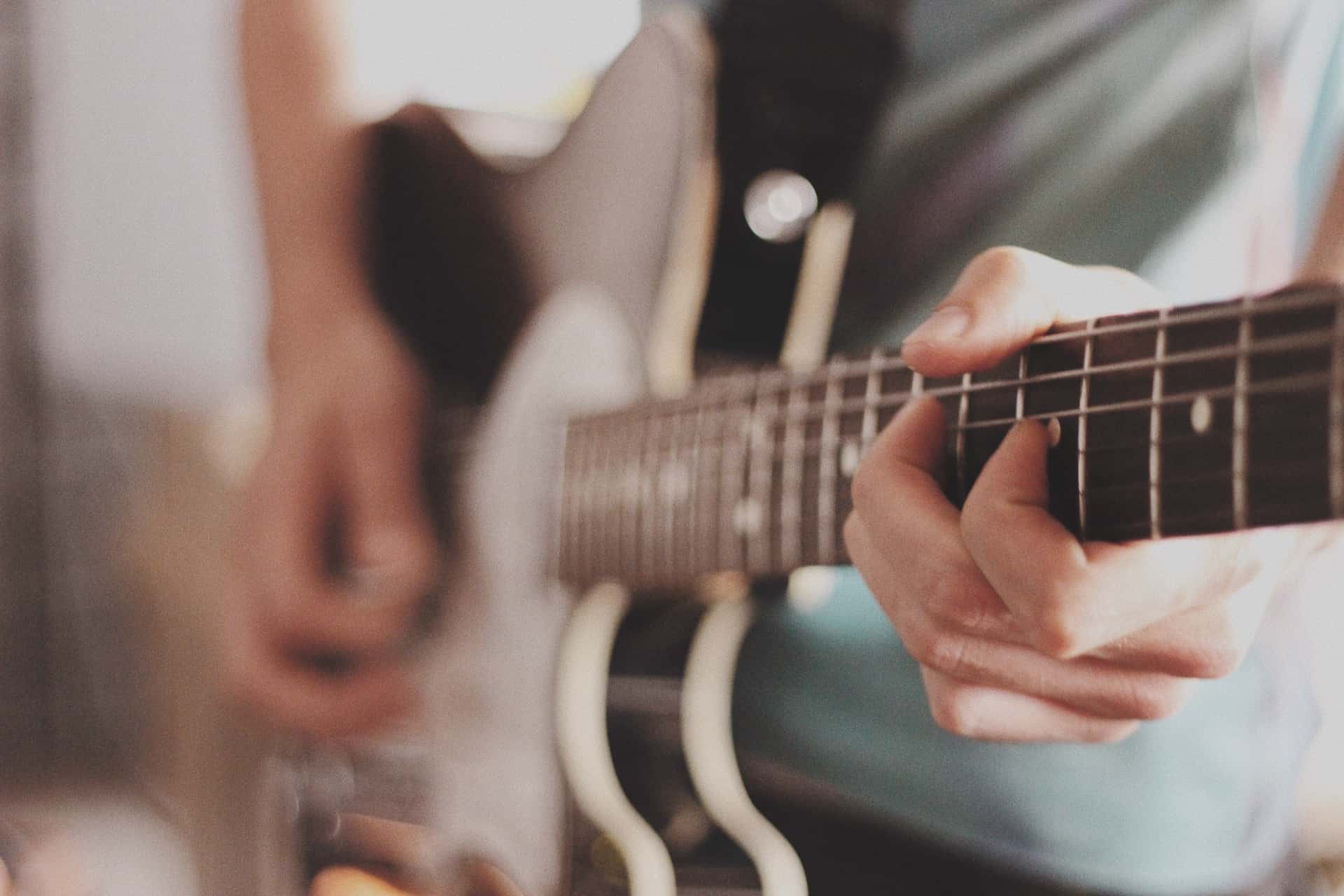When you start dreaming about playing guitar, the idea of playing an electric guitar may become more appealing to you than an acoustic one. Of course, this is a matter of taste, and you may prefer one over the other. But when you are at home or at a live show, listening to your favorite music and you start playing an air guitar, surely you are thinking about an electric guitar and not about an acoustic one. So this question arises: Can you learn to play an electric guitar before an acoustic guitar?
Many times we are drawn to the ideas of others. They may tell you that you should start with an electric guitar because it’s easier to play. Or you might be told that you should start with an acoustic guitar because it’s harder to play. Therefore it will make you work harder and that your hands and fingers will get stronger. Personally, I think these ideas are just myths. In my personal experience, it has been easier to start with an electric guitar. Having played both for over thirty years, I can say with some authority that starting your apprenticeship as a rookie with an electric guitar has many benefits.
Beginning to play electric guitar will improve your initial learning
Initially, I must tell you a great truth. The best thing is to start with the type of instrument you prefer and the one that you find most attractive. But above all, the one that you enjoy most how it sounds. After all, it’s all about learning to play an instrument, enjoying what you play while playing it with our own hands. This is something that no technology will change in the future. The pleasure you get from listening to what you play on an instrument yourself is priceless.
Due to the ergonomic design of electric guitars, you can develop better finger posture on the fretboard and much faster than on an acoustic one. Everything in an electric guitar has been thought out and designed to allow fast-playing. Its thinner body, the thickness of the neck, the distance between frets, and the lower fretwork. All this allows better access to the whole neck, and an easier way to reach the frets closer to the instrument body.
Is it better to learn an electric guitar if I want to play at home?
There are several advantages to starting with an electric guitar if you want to play at home. One is that you can play with your guitar unplugged from the amplifier or using headphones.
When you start trying to play the first chords, it’s not going to matter if it’s your favorite song or how easy the song is. I’m not going to lie to you, but you’re going to sound bad, really bad, you’re going to sound awful. And there’s no problem with that, that’s the point. Because what you’re doing is something very good, remarkable and admirable. What matters is that you’ve already started playing. Unlike the vast majority of human beings on this planet, you’ve started playing an instrument. With all the effort and frustration that goes with it. You will see that you will get better, as long as you play every day. Let’s say, if you play at least 15-30 minutes every day, you will get better little by little.
Is it better to learn an electric guitar if I want to play in a band?
Something remarkable about an electric guitar is its versatility. Keep this in mind, it is the most versatile version of all guitars out there. It is known to be an icon instrument of rock since the old fifties. But, if you pay attention, you can notice that electric guitars are present in almost every group of rock, folk, pop, alternative, reggae, and in almost every contemporary orchestra. Even electronic music bands use live or sampled electric guitars because it’s sound is so unique and perfect that It can’t be electronically emulated with good quality. An electric guitar is an incredibly versatile instrument that allows acoustic, distorted, and effects sounds of all kinds. And you can use sampled sounds with MIDI technology to imitate sounds from other instruments as well.
Is it complicated to learn how to operate the amplifiers, pedals, and other devices to which an electric guitar is connected?
Surely you have seen at live shows that most guitarists have several pedals connected to each other on the floor and one or more amplifiers and speakers behind them. When you see all this paraphernalia connected to an instrument, your reaction can be of fear and horror. Or you may feel a great curiosity and even want to get your hands on all those exciting devices that are part of the life of an electric guitar player.
I have always been fascinated by this world of valve amps, pedals, and effects consoles. My advice is to go straight to an electric guitar because it will be much more fun. Don’t think that you have to buy everything at once. You can start with a small amp to play at home, some cables, and one simple distortion pedal. Once you’ve mastered the chords of some of your favorite songs, there will be time to buy more equipment.
You’ll find that you’ll have to do a lot of research. Because based on your tastes in music, you’ll tend to choose this or that pedal, effect, or device. You can find maps with the instrument models, effects, and amplifiers of your favorite guitarists online. There are many sites specialized in these topics.
Of course, starting with a simple acoustic guitar can be a little more economical. But please don’t miss out on all the fun of getting started with an electric guitar. You will have time after learning to play electric guitar, to buy other guitar models, and even a lute if you want.
Last but not least, I want to be clear that you can absolutely learn to play an electric guitar before an acoustic guitar. And even more: I recommend you to start with an electric guitar as I did. You will not regret this.
My best wishes to you and I hope you enjoy the experience of learning to play electric guitar.



